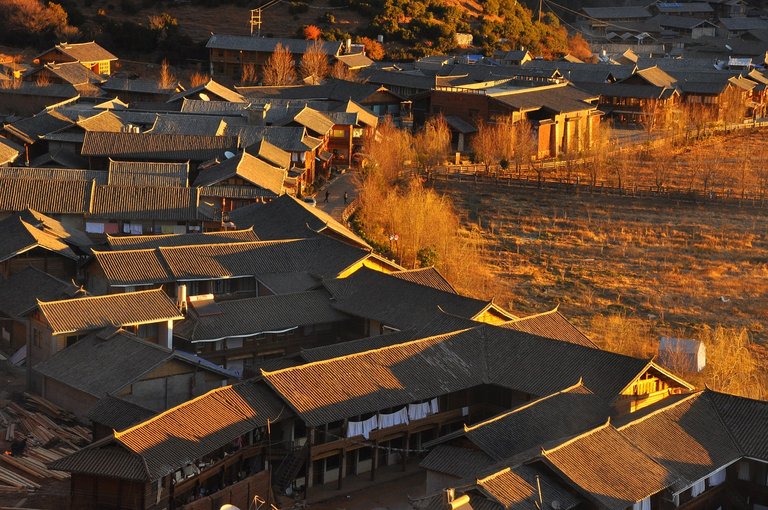Are there human societies where non-monogamy is normal? If so, what does that mean for the shape of family? And for child rearing in particular?
Reading about some examples of polyamorous societies in Sex at Dawn, by Christopher Ryan and Cacilda Jetha was hugely inspiring to me. One example really stuck with me where not knowing one's biological father was designed into the social fabric of human life. Instead of this meaning lack, it led to children having multiple male parents and a broader parental network.

The authors gave an example from the Mosuo, a Chinese society of 50,000+ people living on the lake pictured above. As of 2006, the Mosuo still had the following customs in tact:
The Mosuo are a matrilineal, agricultural people, passing property and the family name from mother to daughter(s), so the household revolves around women. When a girl reaches maturity at about thirteen or fourteen, she receives her own bedroom that opens both to the inner courtyard of the house and to the street through a private door. A Mosuo girl has complete autonomy as to who steps through this private door into her babahuago (flower room). The only strict rule is that her guest must be gone by sunrise. She can have a different lover the following night - or later that same night - if she chooses. There is no expectation of commitment, and any child she conceives is raised in her mother’s house, with the help of the girl’s brothers and the rest of the community.
…
Among the Mosuo, a man’s sisters’ children are considered his paternal responsibility- not those who may (or may not) be the fruit of his own nocturnal visits to various flower rooms. Here we see another society in which male parental investment is unrelated to biological paternity. In the Mosuo language, the word Awu translates to both father and uncle. “In place of one father, Mosuo children have many uncles who take care of them.
As they say, it takes a village to raise a child. The book goes on to say how the Mosuo's customs also protect personal autonomy and sexual liberty, both of which are culturally revered. Sounds pretty great, no?

Sex at dawn was fascinating to me, and I would recommend it to anyone who wants to dive deeper into the background of the myth that "monogamy is natural." The book makes a case that polyamory is in many ways more in line with our biological evolution and gives fascinating examples of non-monogamous societies.
If you are born and raised in a society where nuclear families are the norm, it might be hard to imagine that it could be any other way. Maybe you never even thought to question it. In my next post about alternative family structures I'll share a different story of another "non-traditional" family structure that might be even more surprising to you.
In "Open Relationships and Polyamory" pt. 1, I shared more personally about how I began to think that maybe monogamy didn't make sense for me. In pt. 2, I shared about my first attempt at open relationship - which confirmed it with shocking certainty.
I hope this has been an enjoyable read. Questions, reactions, feelings - all welcome if you'd like to share. Ideas for future topics related to polyamory and open relationships? Ask away!
Peace and love,
Jared
I find it very interesting how this culture really works, usually Hispanics repudiate polyamory or any other type of open relationship
I think you'd find Sex at Dawn very interesting, then - it goes into much greater depth about the social fabric and people's attitudes regarding sexuality, autonomy, personal privacy, etc. both in this culture and in others where monogamy is not the norm. I have only scratched the surface here :)
This post has received a 9.18 % upvote from @booster thanks to: @jaredwood.